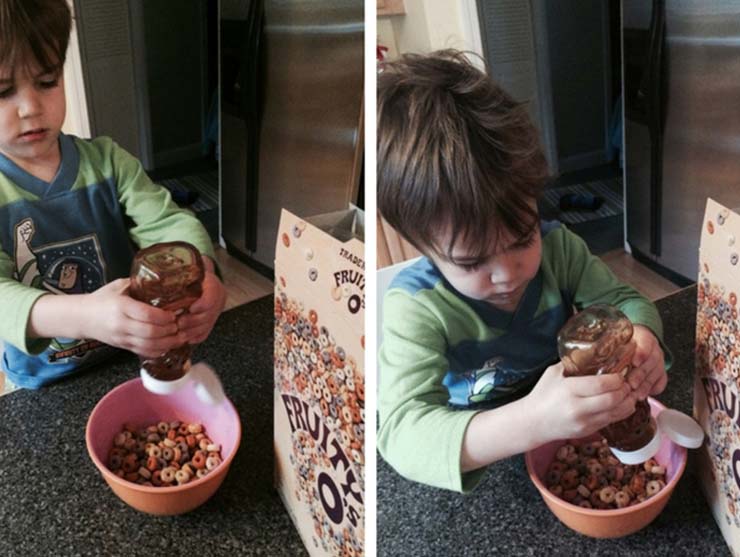All parents want their children to do well in school. Whether our own school experiences were positive, neutral, or negative, we want our children to succeed in school and life and often are willing to do anything to support that goal. A question many parents wonder about, though, is how much support we should give our children to earn good grades. Do we help with homework? Do we encourage good grades with rewards?
How to Help Kids Get Better Grades
- Have high but realistic expectations. We should always hold high but realistic expectations for our children. Let your kids know that you think they are smart and capable and provide assistance as needed with homework and projects. But don't go overboard with your expectations. Having high expectations is important, but having too high expectations can put unnecessary pressure on your child and that is not usually helpful.
- Provide homework help. Creating homework space and offering help is a good thing. Sometimes all that is needed with homework help is to listen while your child thinks through a project. Showing your interest in and of itself is helpful. You can also ask open-ended questions (like "What do you think?") to help the process along, but not give the answers. Asking open-ended questions works even after the content of your child's homework exceeds what you remember from school.
- Encouragement over praise. There has been a lot of discussion recently about praise vs. encouragement. Praise ("good job" and "well done") is less helpful than descriptive phrases that offer encouragement ("These last few months you have been really consistent about doing your homework each night and it shows in these good grades."). Specific encouragement as part of positive parenting is helpful because you are telling your child exactly what he did that was beneficial. He is more likely to remember your specific encouragement than a generic "good job."
- Refrain from rewards if your child is intrinsically motivated. Most of us want our children to be intrinsically motivated - in other words, we want our children to want to earn good grades and to work without verbal recognition or tangible rewards. By the time they start school, many children are intrinsically motivated and our job is to help them maintain this quality. A powerful way to encourage a child's motivation is for parents to model working towards a goal, whether it be cleaning the kitchen or completing a challenging project at work. If a child is intrinsically motivated and he or she is offered tangible rewards for good grades, that child will likely come to rely on the rewards and may, in the future, only get good grades if a reward is present. So rewards are not needed if your child is intrinsically motivated and may even have a negative outcome.
Tips on Offering Tangible Rewards for Good Grades
Offering tangible rewards (like money, a toy, new boots, etc.) tend to make your child dependent on the reward to achieve good grades in the future. Your positive words can mean more. However, if you are already offering rewards or are trying to build your child's motivation, here are a few things to consider:
- You might try saying that this reward is only for this one time so that you don't set a precedent for all good grades in the future. Your child may still say, "but last time, I got..." but you know you are being true to your agreement.
- Be specific about your expectations when it comes to rewarding good grades. "If you get three A's, you will get..."
- You must follow through on what you agreed to. If your child doesn't earn the grades agreed to, she doesn't get the reward.
- Children may compare their reward to their friend's reward ("I only got $1, but Emily's mother gave her $5 for good grades."). Be prepared with a response such as, "Different families make different choices about rewards for good grades."
An alternative to tangible rewards for good grades is that your child could earn time with you to do an activity of your child's choice. Often this is the best reward possible. The challenge here is that earning good grades shouldn't be the only time your child gets individual time to do a special activity with you. This should happen on an ongoing basis.
So how do you decide what is best when it comes to encouraging good grades and doing well in school? A few things to remember are:
- If your child is intrinsically motivated already, rewards are not necessary and may even have a negative impact.
- Save tangible rewards only if needed or for special circumstances and be clear that this is a one-time practice to bring their grades up.
- Consider offering special time with you as an alternative to a tangible reward.
- Consistently offer encouragement for your child's efforts. This should happen regularly.
Each family has to decide what works best for them with reward systems. Your decisions may be different than your neighbors and others in your extended family. Taking time to think through how you want to handle this area will be important in the event that questions from your child or others arise.
- School work is a big part of getting good grades. Learn how to help kids get better grades by making homework a positive experience for everyone.
- What do you do when homework is too hard for the parents? Blogger Kris-Ann is struggling to help her son with Common Core math.
- Dinner, activities, sports, showers...how do you make homework work with your busy family's schedule?
- Find tips on behavior charts and reward systems to make it a positive experience.
- Find tips for creating good homework habits, offering help, and how to create a space for kids to do homework.
- Weigh the pros and cons of children's schedules and get tips for finding the right balance of sports and activities.





